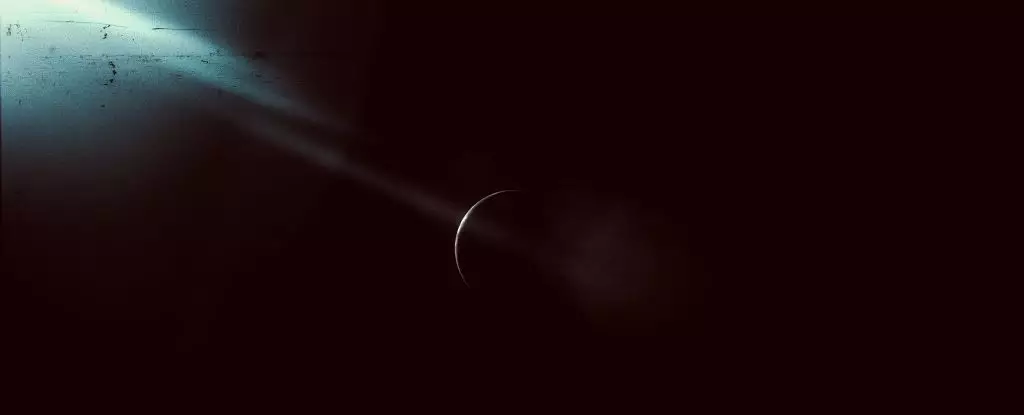The Earth, often referred to as the “blue marble,” is an awe-inspiring sight, beautifully suspended in the vastness of space. For the majority of people, witnessing this breathtaking view firsthand remains an unattainable dream. Fortunately, the few fortunate souls who have ventured into outer space share their extraordinary experiences, gifting us perspectives that provoke deep emotional responses regarding our planet’s place in the universe.
Among these profound journeys, one notable event occurred during the Apollo 15 mission in 1971. NASA astronaut Al Worden made a remarkable contribution to our understanding of Earth’s significance while piloting the command module during the mission. Capturing images of the Earth from a distance, Worden knew that he was documenting something monumental. Utilizing a 70mm Hasselblad camera, he photographed the Earth as a slender crescent, casting a captivating glow against the backdrop of the cosmos, meticulously showcasing the delicate balance of our planet amid an infinite void.
Worden’s experience was marked by solitude, for he spent three days orbiting the Moon alone while his fellow astronauts explored the lunar surface. This time of reflection allowed Worden to grasp a deeper understanding of our planet. Not merely a celestial body, Earth transcended physicality and transformed into a poignant symbol of home and belonging. During the return journey, he executed the first deep space spacewalk to retrieve essential film cassettes from onboard equipment—a pioneering endeavor that mirrored his singular existence in that vast expanse.
The revelations Worden experienced during this brief engagement with the cosmos left an indelible mark on him. Upon returning to Earth, he shared his emotions through poetry—an innovative leap in documenting the astronaut experience. His first published work, released in 1974, illustrated the emotional tapestry woven through his encounters with space. Through his words, he articulated the beauty and fragility of Earth, illuminating its extraordinary presence against the somber backdrop of the universe.
Al Worden’s poem “Perspective” encapsulates his feelings during that historic journey. It explores the interplay between vulnerability and strength, as he reflects on how our planet, in all its diversity, exists amid countless celestial bodies. His poignant lines speak volumes, expressing a sense of awe and summoning a contemplation that every individual could resonate with:
“Of all the stars, moons, and planets,
Of all I can see or imagine,
This is the most beautiful;
All the colors of the universe
Focused on one small globe;
And it is our home, our refuge…”
These verses invite readers to ponder their own existence in the grand scheme of life and the cosmos.
Worden’s reflections extend beyond himself, urging future generations to connect with the beauty and fragility of Earth. He reminds us of our shared journey through the cosmos and challenges us to embrace the same sense of wonder he experienced. “Try it, sometime… Take a walk on a summer night, look up at the moon, and think of us.” Through this invitation, Worden offers not just a glimpse into his celestial adventure, but a profound call to recognize our innate link to the wonders surrounding us, encouraging a more profound appreciation of our shared existence.
Al Worden’s narrative serves as a reminder of Earth’s unparalleled beauty, inviting us to reflect on our responsibility to preserve it as we continue to explore the mysteries of the universe.


Leave a Reply